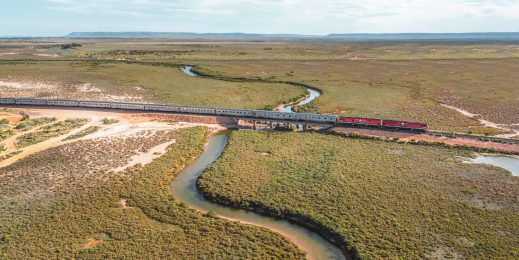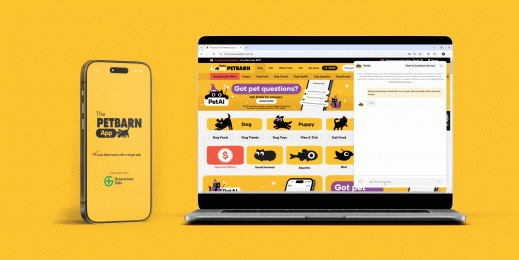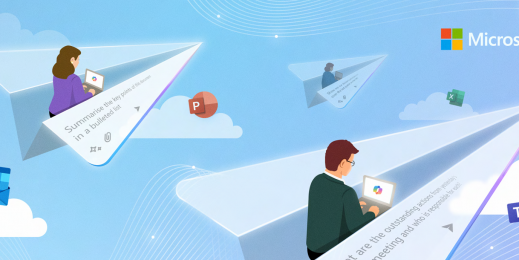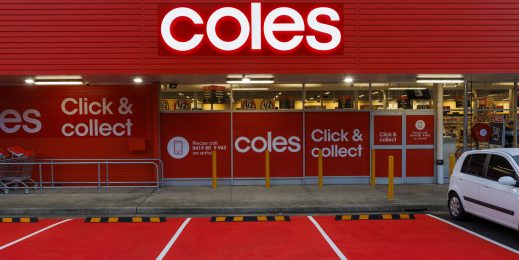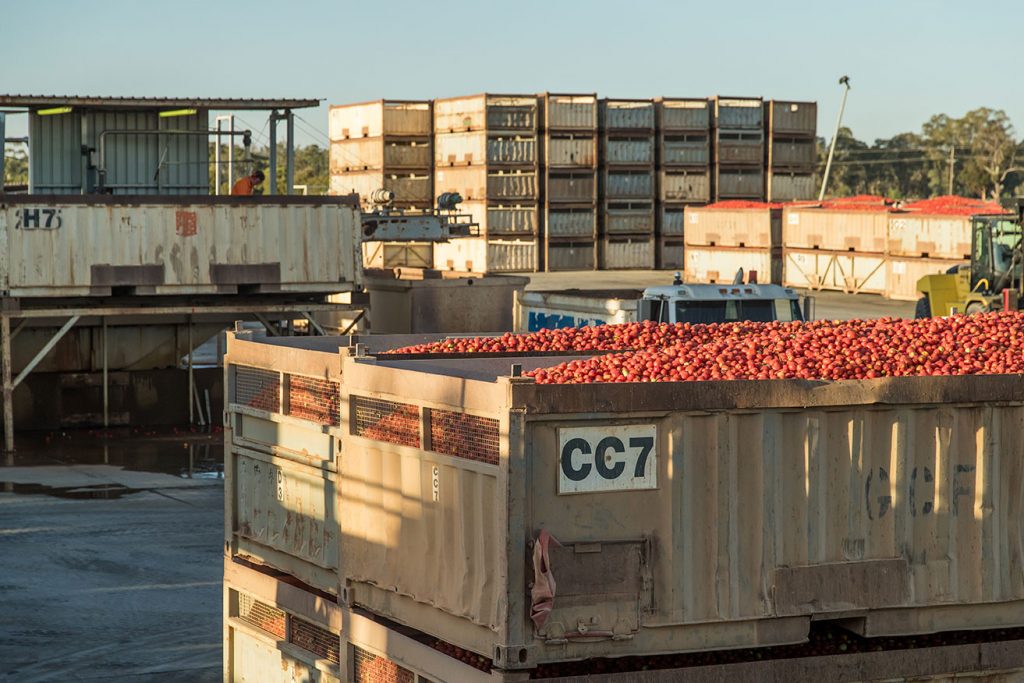
Digital Transformation
Inspiring digital transformation on Australian farms in rural Victoria
During harvest 4,000 tonnes of tomatoes roll into Kagome’s processing plant every day.
The 100 B-double trucks that roll in and out of the plant deliver 180 tonnes of the fruit each hour.
Over a season Kagome produces up to 40,000 tonnes of tomato paste and dice products and prides itself on its safe, traceable, good food.
Traditionally that quality and traceability was the result of 500 telephone calls a day from the producer to the plant, from and to the trucks, and what Kagome acknowledges was an overwhelming amount of paperwork, fragmented computer systems and a lot of wasted time.
An equivalent challenge for the business is the fact that raw product prices have barely shifted over the last 15-20 years, says Kagome CEO Jason Fritsch. It placed yet a further squeeze on the company to find efficiencies and cost savings without compromising the quality of its product.
“The biggest issue we had was waste all round – largely time. At the end of the day we recognised we had a problem,” Fritsch says.
Chris Motton, services and sales director of Advance Computing, lives and works in Kyabram, a rich farming area 200 kilometres north of Melbourne. Kagome is just up the road (in regional Australian terms at any rate) at Echuca, where Advance also has operations.
Motton boiled the issue down to two issues; Kagome wanted to know where a tomato 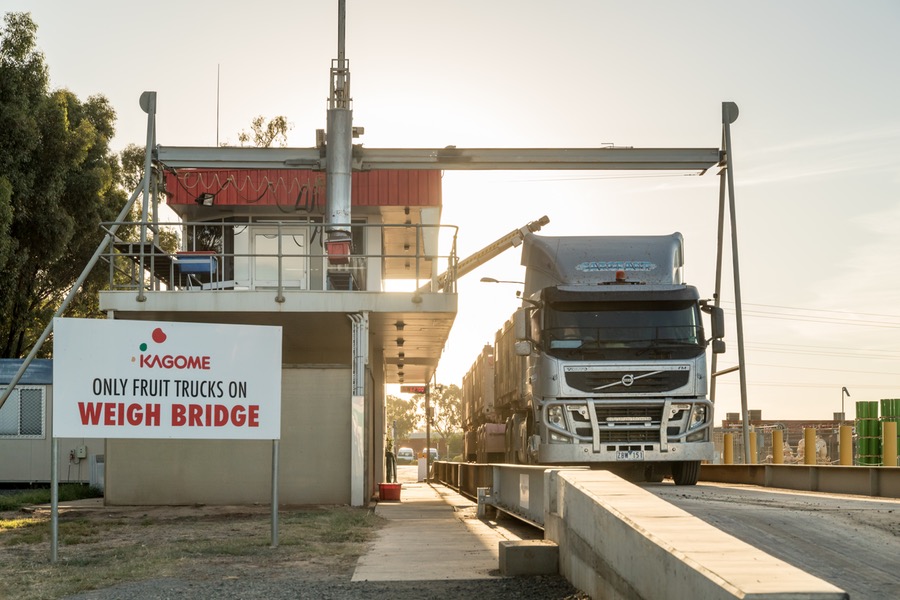 had come from and where it ended up – it wanted transparency; however there was a disconnect between harvest and operations in the factory.
had come from and where it ended up – it wanted transparency; however there was a disconnect between harvest and operations in the factory.
Motton and his team at Advance Computing crafted a Windows 10 Internet of Things based solution that was implemented at Kagome’s weighbridge and in the harvesters that collect RFID information from the bins in which tomatoes are stored.
Out at the farm the system collects data at the point the bin is filled, it registers the weight of the bin, the run number and the GPS location. Once the truck arrives at the weighbridge the tomatoes are weighed again, and once more at unloading.
At each point of its journey – from the farm to the factory – data about the raw product is collected and collated, integrated using SQL Server, mapped against Bing maps to confirm the product origin, and that information is then available to production and Kagome executives.
According to Motton it’s the visibility that has proven most important. “They really had no visibility of where their product was. Being able to put into a portal and give them mobile access has been important.
“It’s delivered a 500 per cent return on investment in the first season alone.”
The next iteration of the system is intended to add in number plate recognition for trucks and bins in order to streamline grower payments, while after this year’s harvest Kagome will run a proof of concept to explore how Power BI could further enhance operations.
Kagome production manager Brad Free says that the Microsoft based solution delivers the attention to detail that the company requires and the high quality product that the customer expects.
It’s had additional personal benefits for Free too; “If I wake up at night which I do in tomato season several times during the night I can just click on my phone and see what raw material we have in stock. It’s been a fantastic investment.”
Says Fritsch; “It used to take well over 500 calls between individuals to get this coordinated. We’re now down to 40-50 and we are just doing it better.
“In regards to our quality traceability, and sustainability that’s where technology is playing a major part in that process.”
Motton who has spent the majority of his working life as an IT specialist in regional Australia says that technology is an increasingly critical part of agriculture, essential for farmers’ competitiveness.
Established in 1999, Advance Computing is a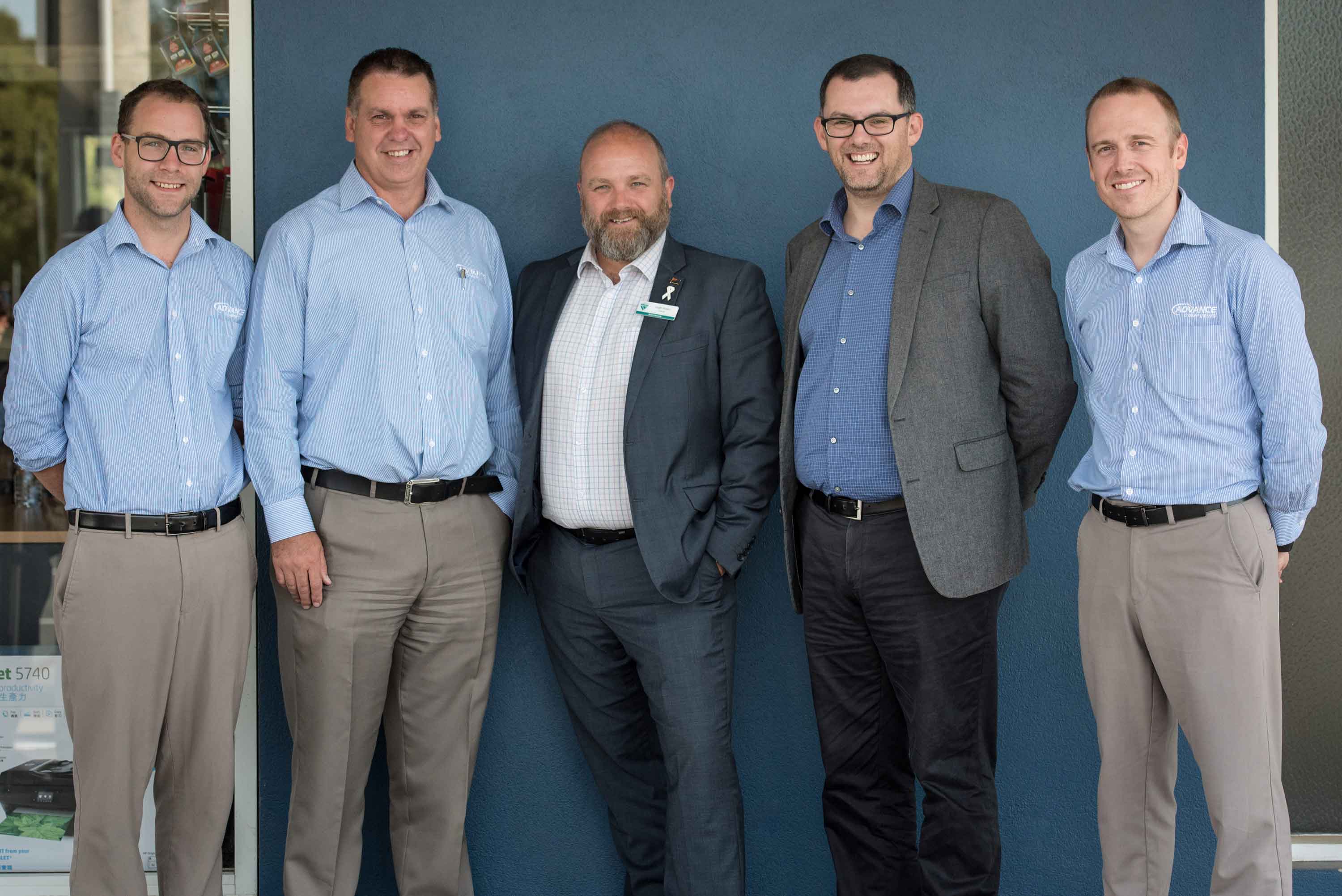 n award winning Microsoft partner that sells solutions nationally, partnering with other service providers around the country to meet the particular geographic needs of clients.
n award winning Microsoft partner that sells solutions nationally, partnering with other service providers around the country to meet the particular geographic needs of clients.
While not exclusively farming focussed – it also works with financial and professional services firms – Motton acknowledges that for many IT service and solutions providers; “The argument for verticals is becoming compelling – choosing the fields where you can add more value than the competitor down the street.”
And in this case the fields are actual rather than metaphorical.
Greenwood Orchards for example is a Demeter certified bio-organic apple and pear farm. But it was a farm with a problem as Motton explains; “The area where our business is based is dependent on the success of agriculture – and fruit fly poses such a significant threat – we felt it was important to invest some of our energies to understand the situation and what could be done about it.”
Lynton Greenwood, who describes himself as the “caretaker” of Greenwood Orchards 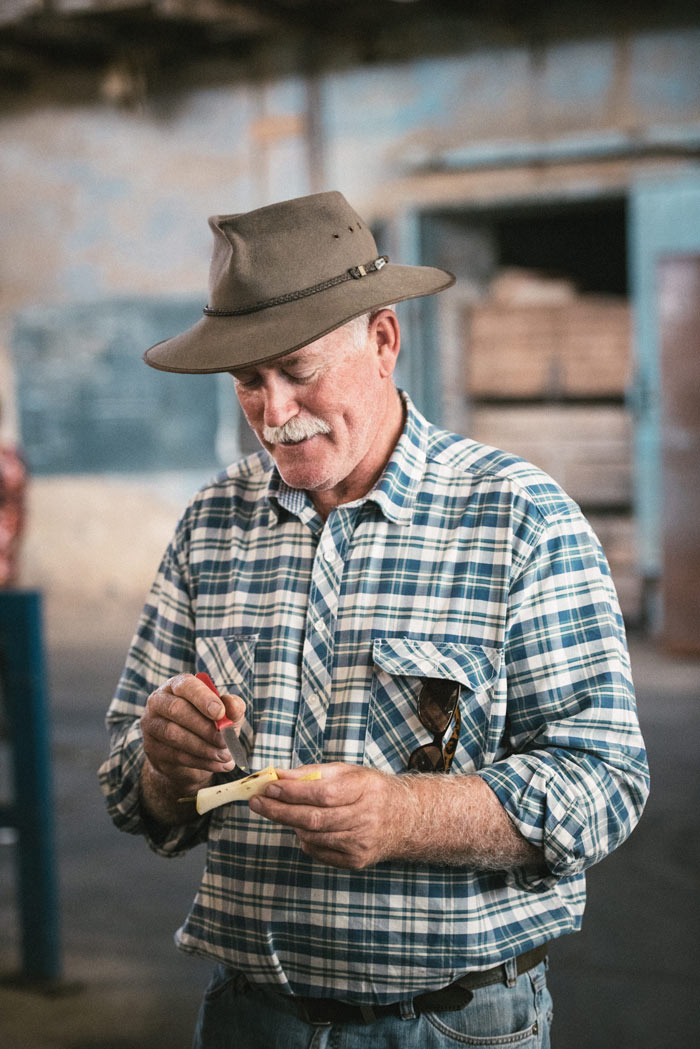 says that pink lady apples are particularly susceptible. “I’ve been told that there are some blocks of pink ladies within 10 Kms of here that lost 90 per cent of their crop to fruit fly.”
says that pink lady apples are particularly susceptible. “I’ve been told that there are some blocks of pink ladies within 10 Kms of here that lost 90 per cent of their crop to fruit fly.”
If farmers had more information about where the fruit fly were gathering they might be able to distribute more traps and bait to protect their crops.
The question that Motton asked his team was; “How we could empower people to start collecting that data and complement the traps and monitoring systems that people already have in place?”
Enter a crowdsourcing app. By writing a smartphone app that locals could download it was possible to start collecting data from around the region about the number of fruit fly that were being trapped in people’s back yards. Combine data from all those smartphones along with the GPS co-ordinates and suddenly it was possible to start heat-mapping the data.
Advance Computing used Xamarin and Visual Studio to develop the smartphone app, which is available for a range of devices to ensure maximum uptake. This links to Microsoft Azure at the back end where the data is collated and analysed with insights then provided to farmers so that they can take action to protect their crops.
At present the solution relies on locals self-checking their traps, counting the flies, and then uploading that data. In the future Motton envisages using smartphones to capture a photo, and use Cortana image recognition to identify and count the pests. Advance is also talking to the manufacturers of automated traps about how data collected in these devices can be automatically uploaded to the system.
According to Motton; “Farmers by design are very innovative people – we are putting technology in their hands that they can see real benefits from.”
Analysing the data requirements and using Microsoft tools to build the solution has enabled a community-wide effort to track and attack fruit fly in the region.
Agriculture – while a huge sector of the Australian economy – is a very diverse industry. But Motton says that all growers, producers and processors are benefitting from technology that has the power to literally transform their business.
“Some genuinely come to us with a problem and they are fairly easy conversations – others we start a conversation about getting their ducks in a row and sorting out the basics.
“Then later we start having conversations about transforming the business – while others we are leading with that because their systems are optimized (already).”
When WaterPool started its conversation with Advance Computing it was to find a better way to distribute precious water resources across the Goulburn River valley irrigation district through an open and transparent marketplace where farmers could trade water resources with one another.
Using Visual Basic Studio, Advance Computing crafted a water trading platform that runs in Azure.
Motton explains; “We were taking something that was paper base, labour intensive and slow and putting that into the cloud. It’s a truly customer facing solution with obvious business benefits – it helps farmers and empowers the business.”
In the past it could take up to a week for a water trade to be concluded using the manual, paper based system
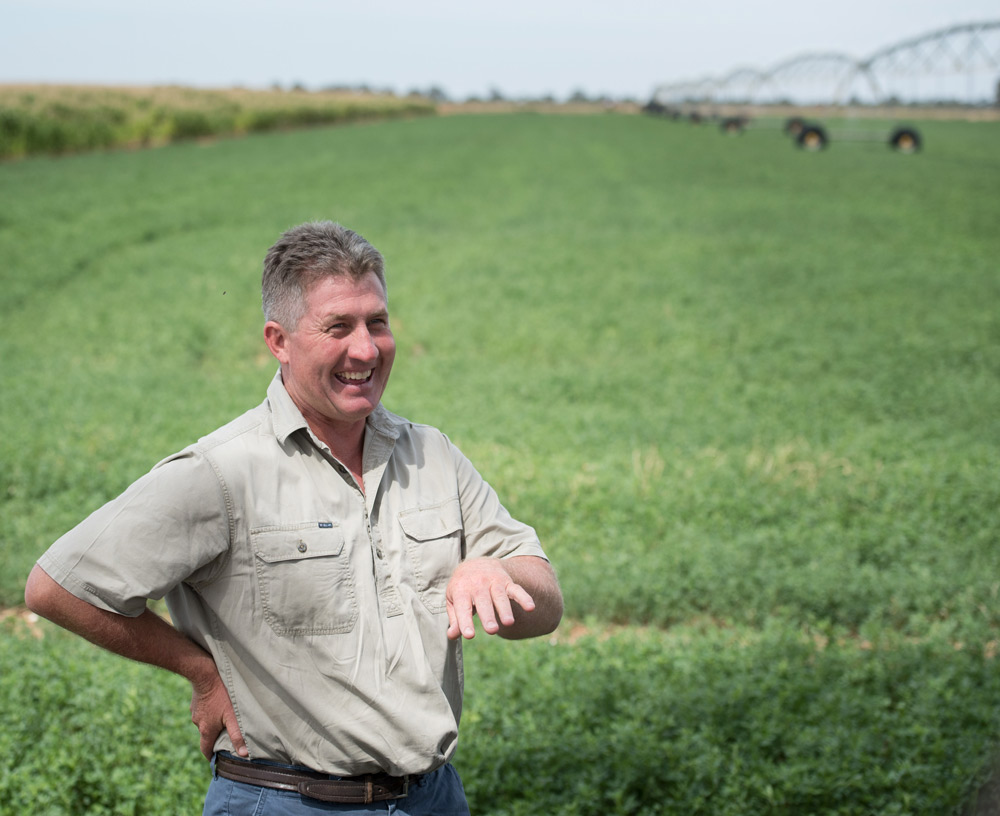 Local dairy farmer Tim Humphris says the Azure based system brings transparency and speed to the water market. “It’s an open trading platform where you see the supply and demand and with the added benefit of live trade room where offers to buy and sell are listed all the time. I can hop on at midnight tonight and look at trades – if there’s 100 megalitres at $95 I hit OK and the water can be in my account overnight.”
Local dairy farmer Tim Humphris says the Azure based system brings transparency and speed to the water market. “It’s an open trading platform where you see the supply and demand and with the added benefit of live trade room where offers to buy and sell are listed all the time. I can hop on at midnight tonight and look at trades – if there’s 100 megalitres at $95 I hit OK and the water can be in my account overnight.”
Motton adds; “To take something that was very labour intensive slow and prone to error and put that online for not just staff at WaterPool but for their customers. When we built the solution it made sense to put straight into Microsoft’s tech. We’re limited in this area and regional Australia with data connections – so rather than have the burden locally it made sense to put that in the cloud. Microsoft gives us the tools to extend and deliver guaranteed uptime.”
To provide even greater insight Advance is also finalising a series of Power BI dashboards for the farmer owned co-operative to provide absolute clarity on trades. It has also had early conversations about machine learning that could advise customers about opportunities. For example a farmer who tends to buy 50 megalitres at a time could be automatically notified when that volume goes on offer at a good price.
For Advance Computing and Chris Motton the benefits of the solutions are absolutely tangible. “It’s growing in the paddock as you drive home, helping the farmer down the road – you get to see the results and that’s really satisfying as a technology company.”





